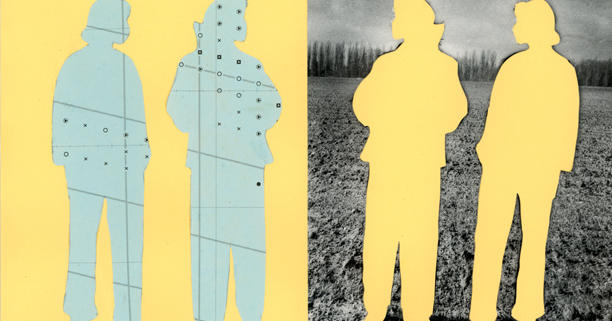“Being irrational and out of control is what happens in real life. Not cautiously choreographing your anger or your emotions, losing yourself in them is what happens in real life.”
—
“Poetry involves the mysteries of the irrational perceived through rational words.”
—
This week I had the pleasure of listening to a lecture on the historical roots and underlying ideas of Unitarian Universalism with my daughter, who is pursuing a degree in divinity. While I don’t identify with any religion, I have always gravitated to UU principles, and at one point in my life, even helped to found a UU fellowship in New Jersey. As a side note, I just googled fellowship to see if the word was still politically correct. More on that later.
To provide a little context, Unitarian Universalism was founded in Transylvania in 1560. And yet, over a more than a 450 year history, there are still less than one thousand “fellowships” and less one million people who identify as UU. You see, UU is grounded in the principles of an open mind and an open heart. I believe the reason there are still so few UUs is because people with open minds have been punished over time. In Hungary today, for instance, Victor Orban, the hero of the far right, has exerted great pressure on all institutions and religions to align with Christianity, a religion he adopted later in life for political purposes and positioning. In the countries of Hungary, Romania and Poland, many UU communities (my preferred word) have subscribed to adorationalism (a theology that God reveals his will to humanity through prophets) as well as Baptism (definitely not a Jewish tradition) to signal that they are not “too different.” To me, that is just another example of closing down instead of opening up.
The main appeal of UU has been its commitment to multiple sources of wisdom. Unfortunately, that commitment has eroded in the face of political and cultural pressures, particularly in the countries in which UU originated. UU, of course, is not alone. Even the teachings of Rumi, the Sufi mystic, have been distorted, appropriated, and politicized by “interpreters.” In fact the recent controversy in the UU community (there is always controversy, by the way, among UUs because all points of view are honored and endlessly discussed), is that the emphasis on tapping multiple sources of wisdom should migrate to an emphasis on values.
As only UUs can do, a committee – after many months of deliberation – came up with the acronym “JETPIG” to represent their core values of Justice, Equity, Transformation, Pluralism, Interdependence, and Generosity. As a reader of this blog, you know that I love acronyms, alliterations, and scales. In fact, I have often been accused by my dearest friends and most trusted advisors that I grossly overuse them. To be clear, I happen to love all six values represented by JETPIG, but I must say it may be a rather unfortunate choice of a mnemonic. And, I might have wanted to include honesty, humility, and humor just to add an alliterative flare. I will resist developing scales for all the values.
Somehow, this rather strange acronym – now enhanced with memes and pictures – reminded me of the saying a “Pig in a Poke” which means buying something without first being inspected to ensure quality and authenticity. Clearly, that saying would be more aligned with my rational views on religion. All of which brings me, in a rather roundabout way, to the theme of this post – the notion that what might appear to be irrational may be entirely rational; and what appears to be rational may be entirely irrational.
The pursuit of rationality, a cornerstone of human progress, is often lauded as the key to understanding and navigating the world. Indeed, based on the Enlightenment’s emphasis on reason and scientific inquiry, the West has championed logic and objectivity. Yet, a closer examination reveals the inherent paradox: rationality, taken to its extreme, can become profoundly irrational. Here are some examples.
Immanuel Kant, a towering figure of the Age of Reason, sought to establish a universal system of morality based on reason. His categorical imperative aimed to create an objective ethical framework. While Kant’s philosophy undoubtedly advanced moral thought, its rigid adherence to universal principles can be problematic. For instance, strict adherence to truth-telling, regardless of consequences, could lead to disastrous outcomes in situations where deception might be the only way to save a life. This highlights a central flaw in purely rational systems: they often fail to account for the complexities and nuances of human experience, the messy realities that defy neat categorization. The very act of imposing a rigid, rational structure onto a fluid, unpredictable world can create distortions and unintended consequences. Margot Robbie speaks to that phenomenon when she implores us not to choreograph our emotions to the point of missing what is happening in real life.
Wallace Stegner’s Crossing to Safety also masterfully illustrates this point. The novel explores the long friendship between two couples, Sid and Charity Lang, and Larry and Sally Morgan. The Langs, particularly Sid, represent a life meticulously planned and controlled, a pursuit of safety and stability above all else. They prioritize financial security, social standing, and predictable routines. While this approach initially appears successful, it ultimately leads to a kind of emotional and spiritual impoverishment. Their tightly controlled existence becomes a cage, preventing them from experiencing the full spectrum of life, including its risks and vulnerabilities. In contrast, the Morgans, though less financially secure, embrace life’s uncertainties with greater openness and passion. They experience both joy and sorrow more intensely, living a richer, albeit more precarious, existence. Stegner’s novel suggests that true safety lies not in rigid control, but in embracing the inherent risks of life, in allowing for spontaneity, vulnerability, and the possibility of failure. The Langs’ “safety,” in the end, becomes hazardous – a form of stagnation, a slow erosion of vitality. Their rationality, their pursuit of a predictable and secure life, becomes profoundly irrational, leading to a diminished experience of life itself.
This phenomenon is not unique to fiction. History is replete with examples of rationality gone awry. The French Revolution, initially fueled by Enlightenment ideals of reason and liberty, descended into the Reign of Terror, a period of extreme violence and paranoia. The pursuit of a perfectly rational social order, ironically, led to widespread irrationality and bloodshed. Similarly, the rise of scientific management in the early 20th century, while increasing efficiency, also led to the dehumanization of labor, turning workers into cogs in a machine. The focus on optimizing processes and maximizing output, while seemingly rational, ignored the human cost, ultimately undermining productivity and creating widespread dissatisfaction.
Materialistic reductionism, the philosophical view that everything can be reduced to its material components, is another example of irrational rationality. While this approach has been valuable in scientific inquiry, its application to the entirety of human experience can be problematic. Reducing consciousness to mere chemical reactions in the brain, for example, ignores the subjective, qualitative aspects of experience, the feeling of love, the awe of beauty, the sense of meaning. While understanding the material basis of these experiences is important, reducing them solely to their material components is a form of intellectual reduction, a denial of the richness and complexity of human life. This kind of rational reductionism, while appearing logically consistent, can lead to a distorted and incomplete understanding of the world.
In short, the pursuit of rationality, while essential for knowledge and progress, must be tempered with wisdom and an awareness of its limitations. When rationality becomes rigid, dogmatic, and blind to the complexities of human experience, it can become its opposite – irrational. True rationality lies not in the denial of uncertainty and vulnerability, but in the ability to embrace them, to navigate the world with both logic and intuition, to recognize that the human experience is not reducible to a set of equations or universal principles. The challenge lies in finding the balance between reason and emotion, between control and acceptance, between safety and the courage to embrace the unknown. It is in this delicate balance that true wisdom, and a truly rational approach to life, can be found.
Now, let’s apply this idea to our current situation AND give credit where credit is due. Team Trump has made some rational judgments about the threat of China, European military spending, illegal immigration, government inefficiencies, budget deficits ($2 trillion), burgeoning debt ($36 trillion), the downsides of language policing (e.g. fellowship), the failures of our intelligence community (e.g. the speed of the Taliban takeover in Afghanistan), ending the wars in Ukraine and Gaza, and the abuses of the pharmaceutical industry. Its reckless decisions about what to do to address those issues, however, (e.g. DOGE, tariffs, freezes, purges, tax cuts for the wealthy etc.)in the absence of any higher purpose and foundational principles, transformed their rational observations and assumptions into completely irrational orders and actions. Naming the issues without specifying what the priorities are, how to proceed, and why change is required seems completed untethered. For example, what level of irrationality is required to alienate our allies and assist our adversaries? Perhaps they should have established some JETPIG values before they embraced a Pig in a Poke. Think Musk.
On a personal level, I’ve been lucky in my life to be married to someone who excels at planning details, reducing risks and establishing routines in the pursuit of safety, stability, security, and predictability. She is a highly rational, responsible and reliable partner. Her rationality has enabled me to push the boundaries, take irrational risks, embrace uncertainty, and pursue my passions. Without her pragmatic counter balance, our life would have been even more precarious than I have made it. Together, we have been able to build a life of rational irrationality. Or something like that.
I’m hoping that our commitment to rationality will not close our openness to ideas that may at first appear irrational but may, in fact, represent a reasonable choice. I’m also hoping that whatever vulnerability we have to irrational ideas may leave a path open to a more rational approach. I’m hoping, as Nabokov suggests, that we can find some poetry and peace in the mysteries of the irrational. Finally, I’m hoping the pigs will quit poking around with our democracy, get on a jet plane, and never come back again. May it be so.
Also published on Medium.




Really good one Ricky! Thank you!
Thanks for this Rick. I’ve been out of touch, your piece showed up in my inbox and I had to reconnect. As always, you give me something to ponder, while simultaneously reinforcing my hopes, leaving me feeling both a bit wiser and thankfully, comforted. Thank you. 🙏🏼
Thanks Dottie. So nice to hear from you. I follow you on linked in. I hope all is well with you. I just celebrated my 80th birthday last week. Time flies. Best.